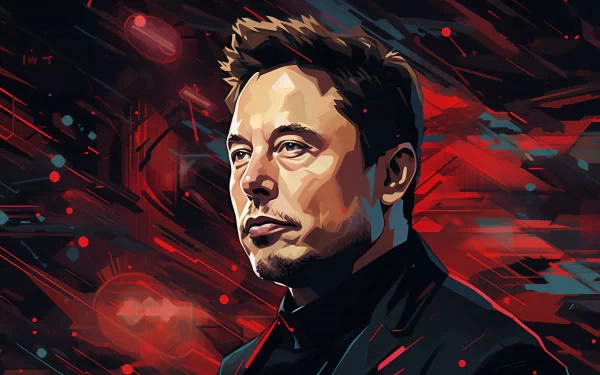Elon Musk Criticizes Apple-OpenAI Partnership, Threatens to Ban iPhones from His Companies
Elon Musk, the outspoken CEO of Tesla and SpaceX, has once again made headlines by vocally opposing a recent partnership between Apple and OpenAI. In a series of tweets and public statements, Musk expressed his disapproval of the deal and hinted at a potential ban on iPhones within his companies.
The Apple-OpenAI Partnership
The partnership between Apple and OpenAI marks a significant collaboration in the field of artificial intelligence. OpenAI, known for its advanced AI research and development, aims to leverage Apple’s vast resources and technological expertise to push the boundaries of AI capabilities. This collaboration is expected to accelerate innovations in machine learning, natural language processing, and other AI-related domains.
For Apple, the deal represents an opportunity to enhance its AI-driven products and services, providing users with more advanced and seamless experiences across its ecosystem. From improving Siri’s capabilities to enhancing user personalization, the Apple-OpenAI partnership promises to bring significant advancements to the tech giant’s offerings.
Musk’s Concerns and Criticisms
Elon Musk’s criticism of the partnership stems from his longstanding concerns about AI and its potential risks. Musk has been a vocal advocate for the ethical development and regulation of artificial intelligence, warning about the dangers of unregulated AI advancements. His opposition to the Apple-OpenAI deal is rooted in the belief that such collaborations could lead to monopolistic control over AI technologies, potentially stifling innovation and posing ethical concerns.
Musk’s threat to ban iPhones from his companies, including Tesla and SpaceX, underscores the seriousness of his stance. He argues that the partnership might lead to proprietary control over AI technologies, which could limit competition and innovation in the industry. By potentially banning iPhones, Musk aims to take a stand against what he perceives as a detrimental move for the tech ecosystem.
Implications for Tesla and SpaceX Employees
If Musk follows through with his threat, the implications for Tesla and SpaceX employees could be significant. A ban on iPhones would require employees to switch to alternative devices, which could disrupt workflows and personal preferences. Given the widespread use of iPhones, such a move could face resistance from employees accustomed to Apple’s ecosystem.
Additionally, a ban could have broader implications for corporate partnerships and collaborations. Both Tesla and SpaceX work with numerous technology providers and suppliers, many of whom rely on Apple products and services. Navigating these relationships while enforcing an iPhone ban could present logistical and operational challenges.
Industry Reactions and Future Outlook
Musk’s criticism has sparked a range of reactions within the tech industry. Some experts share his concerns about AI monopolies and ethical considerations, while others view his stance as an overreaction. The broader industry is closely watching how this situation unfolds, as it may set a precedent for how tech giants collaborate on AI advancements.
Looking ahead, the future of the Apple-OpenAI partnership and Musk’s response will likely influence the discourse around AI development and corporate collaborations. If Musk’s concerns gain traction, there could be increased scrutiny on AI partnerships and a push for more transparent and ethical AI development practices.
Conclusion
Elon Musk’s public opposition to the Apple-OpenAI partnership highlights ongoing debates about the ethical and competitive implications of AI advancements. His threat to ban iPhones from his companies underscores the seriousness with which he views the potential risks. As the situation develops, it will be crucial to monitor how these concerns are addressed and what impact they will have on the future of AI and technology collaborations.






